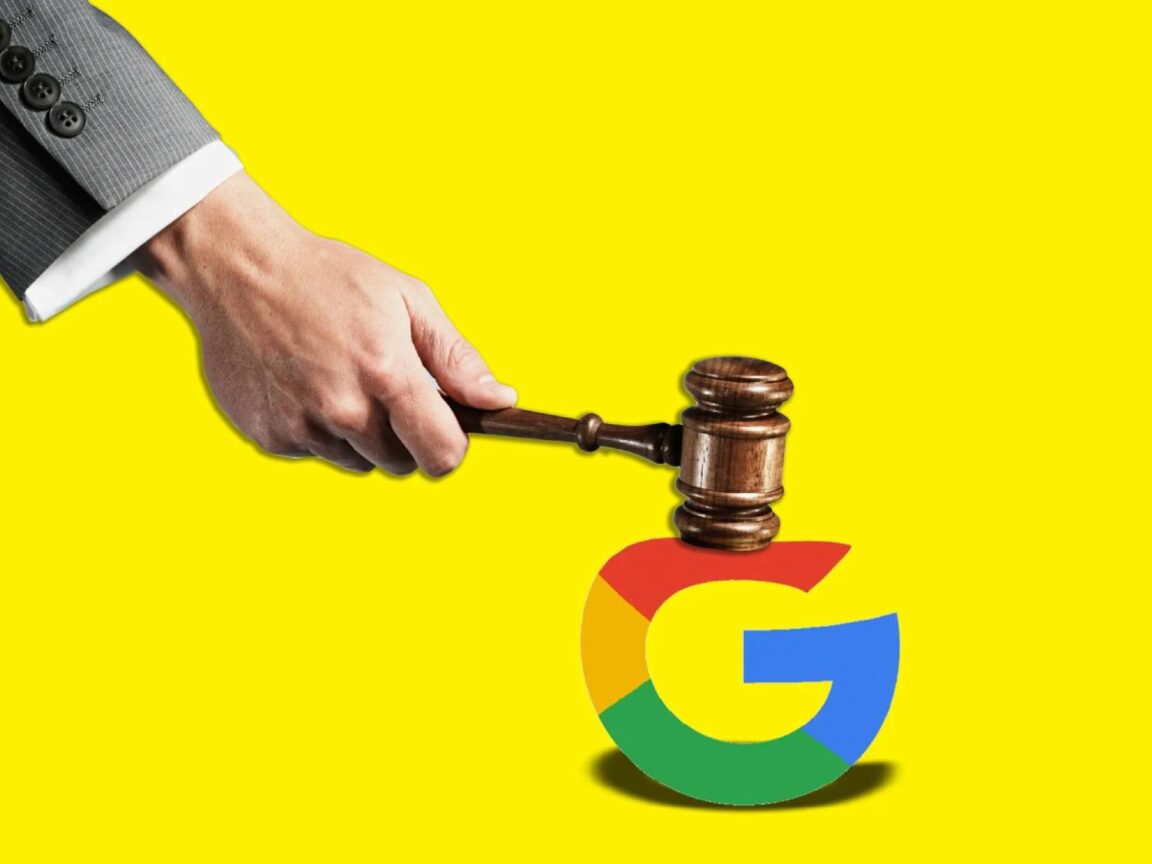In a groundbreaking legal move, Google is under fire in the UK for alleged monopolistic practices related to its dominance in the online search market. A collective lawsuit filed against the tech giant seeks damages that could total billions of pounds, marking one of the largest class actions of its kind in the UK.
Let’s dive into the details of this case, what it means for businesses, and how it could reshape the search landscape in the UK and beyond.
Table of Contents
What Is the UK Class Action Against Google About?
The lawsuit alleges that Google has abused its dominance in the online search market, stifling competition and causing harm to businesses and consumers alike. The case revolves around claims that Google has unfairly prioritized its own services and ads in search results, making it difficult for smaller competitors to gain visibility.
Key Allegations Against Google
- Search Market Dominance: Google reportedly controls over 90% of the search engine market share in the UK, giving it near-total influence over online visibility.
- Self-Preferencing: Allegedly, Google prioritizes its own platforms, products, and paid advertisers over organic results, restricting fair competition.
- Impact on Consumers: The claimants argue that limited competition has led to higher costs for goods and services advertised online.
The Scale of the Lawsuit
- The class action is being led by a prominent consumer advocate, representing millions of UK users.
- Damages sought could total billions of pounds, reflecting the alleged impact on both consumers and businesses over several years.
Why Is This Case Significant?
This lawsuit is more than just a legal battle—it’s a potential tipping point for how search engines operate globally. If successful, the case could lead to significant regulatory changes and set a precedent for similar lawsuits in other countries.
Implications for Businesses
- Increased Competition: Smaller search engines and platforms may get a fairer chance to compete if regulations are imposed.
- Advertising Costs: If Google’s practices are curbed, businesses might see changes in how ads are priced and displayed.
- SEO Strategies: A less monopolized search market could make organic search optimization more rewarding for businesses.
Global Ripple Effect
Countries like the US, Australia, and the EU have also been scrutinizing Google’s practices. A ruling against Google in the UK could embolden regulators worldwide to take similar actions.
How Does This Affect Marketers and Businesses?
For marketers and businesses relying heavily on Google for visibility, this lawsuit raises important questions about the future of search.
1. Diversifying Traffic Sources
Businesses might need to look beyond Google and invest in platforms like Bing, DuckDuckGo, and social media channels to reduce reliance on one search engine.
2. Focus on User Experience
With increasing scrutiny on monopolistic practices, Google may prioritize high-quality content and user experience even more. Businesses must align their SEO strategies accordingly.
3. Opportunities for Emerging Platforms
Smaller search engines could gain traction if the lawsuit results in changes to Google’s operations, offering businesses new opportunities to grow in untapped markets.
Similar Lawsuits Against Google Globally
This isn’t the first time Google has faced legal challenges regarding its dominance. Here’s a snapshot of other high-profile cases:
1. European Union
In 2018, the EU fined Google €4.3 billion for abusing its dominance in mobile search via Android. (Source: Verge)
2. United States
In 2023, Google faced a federal antitrust lawsuit alleging monopolistic practices in the US advertising market. (Source: Wikipedia)
3. Australia
The Australian government has debated stricter regulations to curb Google’s influence, especially in news aggregation.
What’s Next for Google?
While the outcome of the UK lawsuit remains uncertain, Google’s legal challenges highlight the growing demand for greater accountability and fair competition in the tech industry.
- Potential Settlements: Google might opt for an out-of-court settlement to avoid prolonged litigation.
- Regulatory Changes: The UK government could introduce stricter antitrust laws targeting tech giants.
- Business Adaptations: Companies relying on Google’s ecosystem may need to rethink their strategies to align with any future regulatory changes.
FAQs
-
Why is Google being sued in the UK?
Google is facing a class action lawsuit for allegedly abusing its dominance in the search market by prioritizing its own services and ads, limiting competition, and harming consumers.
-
What does this lawsuit mean for businesses?
If successful, the lawsuit could lead to increased competition in the search market, potentially lowering advertising costs and creating opportunities for smaller platforms.
-
How does this impact SEO strategies?
Businesses might need to diversify their traffic sources and focus on creating high-quality, user-focused content to adapt to a more competitive search landscape.
-
Could this lawsuit affect Google globally?
Yes, a ruling against Google in the UK could set a precedent for similar lawsuits in other countries, leading to significant global regulatory changes.
-
What should businesses do to prepare?
Invest in SEO diversification, monitor legal developments, and optimize user experience to stay ahead of potential changes in the search market.
Conclusion: A Potential Turning Point in Search
The UK class action lawsuit against Google is not just a legal battle—it’s a wake-up call for businesses, consumers, and regulators worldwide. As the case unfolds, its outcome could redefine the digital marketing landscape, creating both challenges and opportunities for businesses.
For marketers, this is a critical moment to diversify strategies, stay informed about industry developments, and prepare for a potentially more competitive search environment.



GIPHY App Key not set. Please check settings